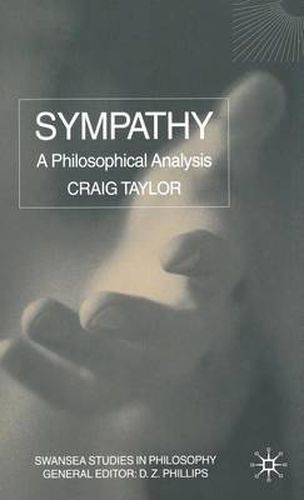Readings Newsletter
Become a Readings Member to make your shopping experience even easier.
Sign in or sign up for free!
You’re not far away from qualifying for FREE standard shipping within Australia
You’ve qualified for FREE standard shipping within Australia
The cart is loading…






This title is printed to order. This book may have been self-published. If so, we cannot guarantee the quality of the content. In the main most books will have gone through the editing process however some may not. We therefore suggest that you be aware of this before ordering this book. If in doubt check either the author or publisher’s details as we are unable to accept any returns unless they are faulty. Please contact us if you have any questions.
It is widely held in contemporary moral philosophy that moral agency must be explained in terms of some more basic account of human nature. This book presents a fundamental challenge to this view. Specifically, it argues that sympathy, understood as an immediate and unthinking response to another’s suffering, plays a constitutive role in our conception of what it is to be human, and specifically in that conception of human life on which anything we might call a moral life depends.
$9.00 standard shipping within Australia
FREE standard shipping within Australia for orders over $100.00
Express & International shipping calculated at checkout
This title is printed to order. This book may have been self-published. If so, we cannot guarantee the quality of the content. In the main most books will have gone through the editing process however some may not. We therefore suggest that you be aware of this before ordering this book. If in doubt check either the author or publisher’s details as we are unable to accept any returns unless they are faulty. Please contact us if you have any questions.
It is widely held in contemporary moral philosophy that moral agency must be explained in terms of some more basic account of human nature. This book presents a fundamental challenge to this view. Specifically, it argues that sympathy, understood as an immediate and unthinking response to another’s suffering, plays a constitutive role in our conception of what it is to be human, and specifically in that conception of human life on which anything we might call a moral life depends.